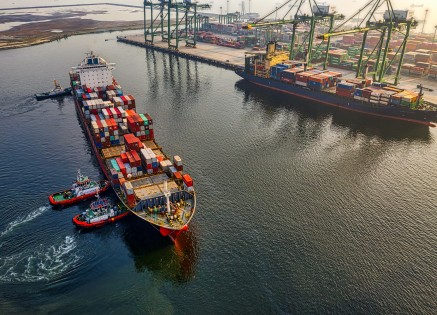Copyright © 2026 lmitac.com All Rights Reserved. Contact - Terms and Conditions - Privacy Policy - Quality Policy - Become an instructor - Vacancies - Sitemap
London Maritime Academy is a trade name for London Premier Groupversion: 2.9.0
London Maritime Academy is a trade name for London Premier Group

Posted On: 4/21/2025, 9:47:21 PM
Last Update: 4/21/2025, 9:47:21 PM
The International Maritime Organisation (IMO) has confirmed that the methane pathway (LNG) will be a key component of the shipping industry's decarbonisation efforts, which has been welcomed by SEA-LNG, the global coalition devoted to promoting the use of LNG as a marine fuel.
As the IMO advances its regulatory framework for reducing greenhouse gas (GHG) emissions, this announcement, which was made a week ago, represents a turning point for the maritime industry.
The International Maritime Organisation (IMO) has proposed a regulatory framework to reduce GHG emissions, ensuring equal competition for fuel pathways like LNG, methanol, and ammonia. This goal-based approach, praised by SEA-LNG, provides a clear path for the international shipping sector.
Given that the IMO has identified LNG—more especially, the methane pathway—as a crucial decarbonisation solution, shipowners can feel secure enough to keep investing in LNG-
dual fuel engine technologies thanks to this framework. In comparison to other marine fuel options, LNG is thought to be a sensible, scalable, and affordable substitute for conventional marine fuels, providing notable emissions reductions.
“We are pleased to see the IMO's commitment to a technology-neutral, goal-based regulatory approach. This provides clarity for the shipping industry and ensures LNG's role in reducing emissions is firmly recognised.” LNG is a practical, realistic, and scalable solution that can help meet the IMO's targets for decarbonisation.”
This development highlights the significance of LNG in the decarbonisation process for the shipping industry. LNG offers lower CO₂ emissions and significantly lower emissions of sulphur oxide (SOx), nitrogen oxide (NOx), and particulate matter (PM) when compared to conventional fuels.
Moreover, LNG is positioned as one of the most practical alternative fuels for international shipping as the maritime sector strives to adhere to ever-tougher environmental regulations.
In addition to cutting emissions, the new regulatory framework is anticipated to promote investments in e-methane and further propel the expansion of liquefied biomethane bunkering, easing the industry's shift to sustainable fuel alternatives.
Maritime Courses London provides in-depth training to individuals and organisations seeking to understand and implement decarbonisation strategies. These resources address various topics, including net-zero goals, greenhouse gas accounting, and specific decarbonisation pathways.

Since its inception in 2016, SEA-LNG has been a leading
advocate for LNG as a key enabler of shipping sustainability. The coalition's membership is diverse, including shipping companies, ports, LNG suppliers, bunkering companies, and infrastructure providers who are all working together to highlight LNG's benefits throughout the maritime value chain.
By conducting independent studies on infrastructure, investment, and emissions, SEA-LNG remains a key player in encouraging the use of LNG. As the global shipping industry works to reduce emissions, SEA-LNG's initiatives make sure that LNG continues to be a key component of the industry's transition to cleaner, lower-emission fuels.
If approved in October, the SEA-LNG framework gives shipowners the confidence to invest in LNG-dual fuel engine technologies because the IMO acknowledges the methane pathway to decarbonisation and provides a viable, affordable, scalable, and realistic alternative marine fuel.
Crucially, the proposed regulations will encourage more liquefied biomethane bunkering and spur more e-methane investments on the supply side.
Read more news: